
Allied Health courses in Bathurst
Course providers in Bathurst
The following providers offer Allied Health courses in Bathurst.



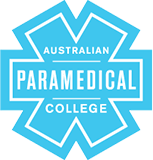


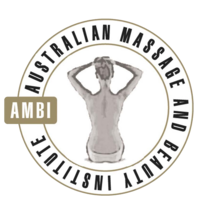

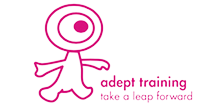

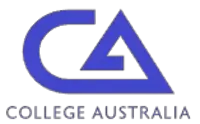











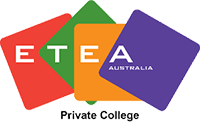




















Career Pathfinder
Skills shortages + AI Exposure
Discover in-demand careers and understand how each role may be impacted by AI and automation.
- See in-demand occupations across Australia
- Check AI Exposure ratings
- Compare training duration and average income
Common questions
Occupational therapists help patients perform tasks in daily life, while physiotherapists help patients improve their movement, strength and function. The term occupation refers to everyday life tasks, while physiotherapy refers to physical therapy. Both are science-based allied health roles that aim to improve quality of life through prevention, maintenance and treatment.
 Stephen Charlton
Stephen Charlton
You can become qualified to work as an occupational therapist by completing one of the following degrees, depending on your educational pathway:
- Master of Occupational Therapy (postgraduate degree)
Average duration: 24 months - Bachelor of Occupational Therapy (Honours)
Average duration: 4 years - Bachelor of Occupational Therapy
Average duration: 4 years
 Stephen Charlton
Stephen Charlton
You can become qualified to work as a physiotherapist by completing one of the following degrees, depending on your educational pathway:
- Doctor of Physiotherapy (postgraduate degree)
Average duration: 3 years - Master of Physiotherapy (postgraduate degree)
Average duration: 24 months - Bachelor of Physiotherapy (Honours)
Average duration: 4 years - Bachelor of Physiotherapy
Average duration: 4 years
 Stephen Charlton
Stephen Charlton
Yes, you need to complete an accredited degree to work legally as an occupational therapist or physiotherapist in Australia. The two core pathways are completing a bachelor’s degree or a postgraduate degree. The Occupational Therapy Council of Australia and Australian Physiotherapy Council are responsible for accrediting such courses.
 Stephen Charlton
Stephen Charlton
Yes, overseas-qualified practitioners can work in Australia by registering with the Occupational Therapy Board of Australia or Physiotherapy Board of Australia. Practitioners who are currently registered with the Occupational Therapy Board of New Zealand or Physiotherapy Board of New Zealand can apply directly for Australian registration. Other overseas-qualified practitioners have to fulfil the requirements listed on the relevant webpages of the Occupational Therapy Board of Australia and Physiotherapy Board of Australia.
 Stephen Charlton
Stephen Charlton
If you have already completed an approved degree in a different discipline, you can gain an accredited postgraduate degree to become qualified to work as an occupational therapist or physiotherapist. Examples of such degrees are a Master of Occupational Therapy, Master of Physiotherapy and Doctor of Physiotherapy. Postgraduate degrees in these fields may have additional entry requirements, including but not limited to health-related prerequisite subjects.
 Stephen Charlton
Stephen Charlton
In some cases, completing vocational education and training (VET) in a related discipline can allow you to meet the entry requirements for a bachelor’s degree in these fields. Entry requirements vary between educational providers. Some providers offer a VET entry pathway with a minimum of a Certificate IV, but others require a minimum of a diploma or advanced diploma. Some providers do not offer a VET pathway for these courses at all. Therefore, it’s wise to confirm the entry requirements for your desired bachelor’s degree before starting a VET course.
 Stephen Charlton
Stephen Charlton
In addition to completing an accredited degree, occupational therapists and physiotherapists will need to register with the Occupational Therapy Board of Australia or Physiotherapy Board of Australia to work in Australia. The Australian Health Practitioner Regulation Agency (AHPRA) administers practitioner registration on behalf of these boards. There are different requirements to gain registration for Australian-qualified practitioners, New Zealand-registered practitioners, and other overseas-qualified practitioners.
 Stephen Charlton
Stephen Charlton
Career paths for these professions include independent contracting, starting a practice, working in community care, paediatrics, mental health, rehabilitation, disability, medical or aged care sectors).
 Stephen Charlton
Stephen Charlton
Jobs and Skills Australia reports that the median full-time weekly earnings for occupational therapists and physiotherapists in 2024 are $1,526 and $1,710, respectively. These figures can be contrasted with Australian workers of all occupations, who earn a median full-time weekly income of $1,697.
 Stephen Charlton
Stephen Charlton
There is a significant demand for occupational therapists across Australia. Jobs and Skills Australia’s Occupation Shortage List indicates that the labour market had a shortage of occupational therapists across all states and territories from 2022 to 2024.
 Stephen Charlton
Stephen Charlton
There is substantial demand for physiotherapists in Australia. Jobs and Skills Australia’s Occupation Shortage List indicates that the labour market experienced a shortage of occupational therapists and physiotherapists in most states and territories from 2022 to 2024.
 Stephen Charlton
Stephen Charlton
Working as an occupational therapist or physiotherapist comes with the satisfaction of directly helping to improve patients’ quality of life. Furthermore, the job market is promising, as Jobs and Skills Australia reports there is significant labour market demand for both professions. The future outlook is also positive, as Jobs and Skills Australia reports that the annual employment growth in 2024 for occupational therapists and physiotherapists is 2,200 and 4,100, respectively.
 Stephen Charlton
Stephen Charlton
Further reading


What can you do with a Certificate IV in Allied Health Assistance (Physiotherapy)?
3rd March 2022
What can you do with a Certificate III in Allied Health Assistance?
8th January 2020All courses
- HLT37315 Certificate III in Health Administration
- HLT33021 Certificate III in Allied Health Assistance
- HLT47321 Certificate IV in Health Administration
- HLT47715 Certificate IV in Medical Practice Assisting
- BSB30120 Certificate III in Business (Medical Administration)
- CHC43315 Certificate IV in Mental Health
- CHC53315 Diploma of Mental Health
- HLT52021 Diploma of Remedial Massage
- HLT41120 Certificate IV in Health Care
- HLT54121 Diploma of Nursing
- Biomedical Science (Exercise and Health)
- 11031NAT Course in Ear Wax Removal (Microsuction)
- Bachelor of Medical Imaging
- HLT32412 Certificate III in Allied Health Assistance
- Master of Occupational Therapy
- Bachelor of Physical Education and Sport Science
- Bachelor of Occupational Therapy
- Bachelor of Sport Science
- Bachelor of Clinical Exercise Physiology
- Master of Sport and Exercise Science
- 10092NAT Certificate IV in Skills for Career Pathways
- Bachelor of Science (Human Biology)
- 22530VIC Course in Identifying, Reporting and Preventing Abuse and/or Grooming of People with Disabilities
More about Allied Health courses
Bathurst, located in the picturesque Central Tablelands of New South Wales, offers a diverse range of Allied Health courses for both beginners and experienced learners. Whether you are looking to launch a career in health or enhance your existing qualifications, the educational options available in Bathurst are extensive. You can explore the Allied Health Courses in Bathurst to find credible training providers that cater to your professional aspirations.
For individuals with no prior experience, the Certificate III in Individual Support (Disability) is one of the key beginner courses available. This qualification paves the way for entry-level roles, providing students with essential knowledge and skills required to support those with disabilities. Local training providers such as Capital Careers are dedicated to guiding students through their educational journey in Bathurst.
For experienced learners seeking to further their careers, an array of advanced courses is available. Options such as the Certificate IV in Mental Health and the Diploma of Mental Health can lead to rewarding job roles within the mental health support sector. Training institutions like CTET offer such qualifications, making advanced education accessible to residents in the Bathurst area.
Students looking to expand into various Allied Health specialisations can choose from various fields. From Nursing to Physiotherapy, there is a course to suit your interests and career goals. Providers like ANTS and AHSI play a crucial role in delivering these qualifications, ensuring that students receive industry-relevant training and support throughout their studies.
Bathurst's educational landscape for Allied Health courses also features a variety of specialisations, allowing students to focus on areas like Pharmacy, Radiography, and Medical Technician programs. With both vocational education and higher education opportunities available, students can seamlessly transition into a fulfilling career in the health sector. Visiting the listings at Courses.com.au is the first step to exploring the many options available to you in Bathurst's vibrant Allied Health education community.
